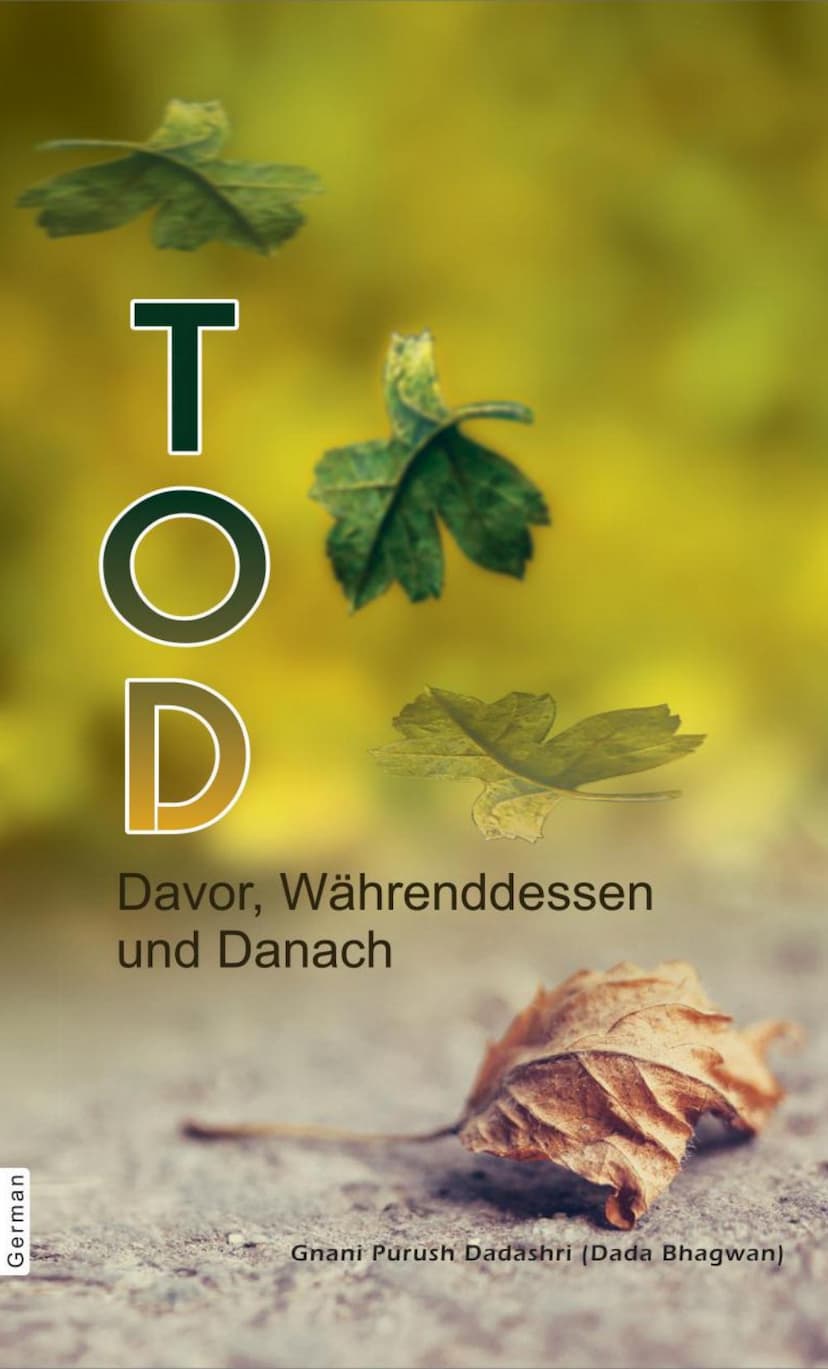Death Before During And After
Added to library: September 1, 2025

Summary
This Jain text, "Death... Before, During and After" by Dada Bhagwan, translated into German and then summarized in English, offers a profound perspective on life, death, and the soul from the standpoint of Akram Vignan, a spiritual science.
Core Teachings and Concepts:
- The Nature of the Self (Soul): The central theme is the distinction between the relative self (the ego, the body, the name) and the true Self, the Pure Soul (Shuddhatma). The Soul is eternal, unchanging, and beyond birth and death. The ego is the source of suffering and the cycle of rebirth.
- Akram Vignan ("The Stairless Path"): This is a direct, step-less path to Self-realization, a spiritual science revealed by Gnani Purush Dadashri (Ambalal M. Patel). It offers a shortcut to experiencing the Pure Soul, often within a short period.
- Gnani Purush: A fully Self-realized being who has no ego and acts as a living instrument of the Divine. They can impart Self-knowledge to others through a process called Gnan Vidhi. Dadashri is presented as one such Gnani, who has passed on his spiritual powers to successors, Dr. Niruben Amin and currently Pujya Deepakbhai Desai.
- The Ego and the Soul: The book emphasizes that the fear of death stems from the ego's identification with the body, not from the Soul itself. The Soul is immortal.
- Karma and Rebirth: Karma is the law of cause and effect. Actions performed with the conviction "I am the doer" create new karma. Negative karma can lead to rebirth in lower life forms (animals, hells), while positive karma leads to higher rebirths (heavenly beings, humans). The intent behind an action, not just the action itself, binds karma.
- The Cycle of Birth and Death: This cycle is driven by the ego's ignorance of the true Self and the resulting attachment and aversion. When the ego is extinguished, the cycle of birth and death ceases.
- The Death Process:
- Before Death: The book discusses how to prepare for death by focusing on spiritual development and performing selfless service.
- During Death: The ideal state at the time of death is a "Samadhi Death," where the awareness is solely on the Pure Soul, with a tranquil mind, intellect, and ego.
- After Death: The Soul, accompanied by the causal body (which includes anger, pride, attachment, and greed) and the electrical body, moves to its next life. The nature of the next life is determined by the balance of one's karma and, importantly, by the dominant thoughts and desires in the final moments of life.
- Dispelling Superstitions: Dada Bhagwan critically examines many traditional rituals and beliefs surrounding death, such as the existence of Yamraj (god of death) or the efficacy of certain ceremonies for the deceased. He clarifies that these often lack scientific or spiritual basis and are sometimes driven by societal pressures or commercial interests.
- Dealing with Grief and Loss: The text advises grieving individuals to focus on sending prayers and peace to the departed soul rather than indulging in personal sorrow, which can negatively impact the deceased. It stresses the importance of fulfilling responsibilities towards the living.
- Self-Harm (Suicide): Suicide is strongly discouraged, as it leads to more suffering and negative karmic consequences, often perpetuating the act across multiple lifetimes.
- The Human Form: The human form is considered precious because it offers the unique opportunity to resolve karma and attain liberation. It is challenging to attain and should be utilized wisely.
- Pratikraman: This is a process of sincere repentance and asking for forgiveness for one's mistakes, performed with a witness. It is a powerful tool for weakening and clearing karma.
- The Role of a Gnani: A Gnani Purush is essential for truly understanding the Self and achieving liberation. Knowledge of the Self (Atma Gnan) resides within a Gnani and can only be received by meeting one.
Key Takeaways:
The book aims to demystify death and the afterlife by presenting them as natural consequences of karma and ego-driven actions. It encourages readers to seek self-knowledge, cultivate selfless living, and understand their true eternal nature as the Pure Soul, thereby transcending the cycle of birth and death and achieving ultimate liberation. The emphasis is on practical spiritual science and direct experience rather than blind faith.